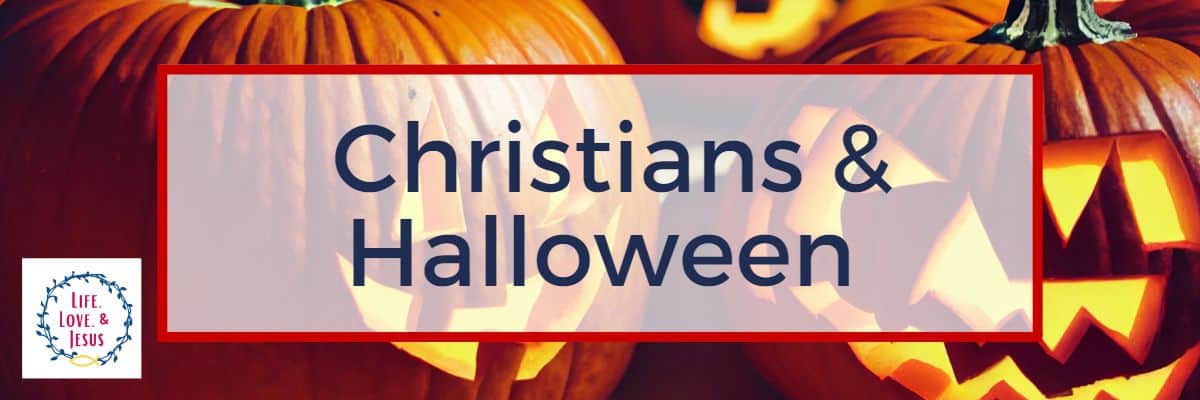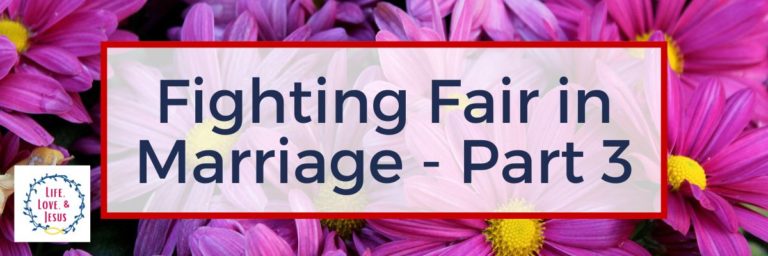Is It a Sin to Celebrate Halloween?
This post contains affiliate links. If you click & make a purchase, I receive a commission! Thanks! Read my full disclosure policy. As an Amazon Associate, I earn from qualifying purchases.
Is it a sin to celebrate Halloween? It’s a question that gets by Christian families every year. Unfortunately, there is no simple, easy answer. There are faithful believers on both sides of the discussion surrounding Halloween and Christians.
There are many reasons believers choose to celebrate Halloween and many reasons believers choose not to celebrate it. This article will share some history, current connections, Biblical principles, and more to help you and your family think through this issue and decide what is right for you.

Halloween’s Pagan Roots
Historians have linked Halloween to the ancient Celtic celebration of Samhain. That pagan holiday was traditionally celebrated on November 1st in Northern France, Britain, and Ireland. Through a long, slow process, that holiday was transformed into the current celebration of Halloween. For more on the history of Halloween, check out The History Channel’s page.
One key part of Samhain was the belief that the line between the living and the dead was thin or weak and therefore could be crossed by evil spirits. This belief led to many practices to ward off these evil spirits. These practices have morphed into what we recognize as jack-o-lanterns, giving treats, and wearing costumes.
While it is true that there are echoes of paganism in the history of Halloween, the same can be said of Christmas and Easter. Instead of Samhain, Christmas co-opted the holiday of Saturnalia, and Easter the celebration of Eostre, a pagan goddess. The pagan roots of the holiday may prohibit some believers from celebrating Halloween in the 21st century. But it may not matter to many.
Regarding the topic of Halloween’s pagan roots, ask yourself these questions:
- Do the pagan roots of Halloween bother me personally, and why or why not?
- Do the pagan roots of Christmas and Easter put them in the same class as Halloween? And if so, should I be celebrating them?
- Am I fearful that the pagan roots of Halloween will in some way harm my family? If so, is that fear from the Lord?
Halloween’s Christian Roots
Part of the ‘long, slow process’ I mentioned involved putting Holy Days on the Catholic church calendar in the Middle Ages to discourage the celebration of pagan festivals and encourage the observance of holier rituals. Hence, All Saints’ Day – also known as All Hallows Day – was observed on the first of November. The day before All Hallows Day was All Hallows Eve, which became Hallowe’en or Halloween.
Some churches still observe All Saints’ Day on November 1. However, in 1517, Martin Luther nailed his 95 theses to the door of the cathedral in Wittenberg, Germany on October 31, thus starting the Protestant Reformation. This act eventually made Reformation Day a day of remembrance in many churches as well. These two days, taken together, have long competed with Halloween’s more secular (or sinister) attraction.
Regarding the topic of Halloween’s Christian roots, ask yourself these questions:
- Can I somehow remember the many men and women of faith who paved the way for me and my family, while also enjoying the secular nature of traditional Halloween celebrations?
- Do these men and women deserve a holiday or should I make it a more regular habit to remember past believers in another way (for example, reading aloud biographies of missionaries or martyrs)?
- Is the celebration of Halloween in its current form beyond redemption? That is, should I even try to merge these historical facts with the holiday?
Halloween’s Current Spiritual Undertones
While the roots of Halloween may not be of interest to you in your decision-making process, perhaps the current spiritual undertones will be. Carving pumpkins, going trick-or-treating, and dressing up as robots, aliens, or princesses may be all done in fun.
However, the association with horror movies, the dead, zombies, monsters, vampires, and ghosts (not the Casper-the-friendly-ghost kind), can give some families reasons to reconsider their involvement with Halloween. Even decorations, with the preponderance of witches and skulls, seem to bring out the darker side of the holiday.
Additionally, as the world seems to be growing more wicked by the year – if not by the day – the association between Halloween and current wickedness is becoming more pronounced.
- Wiccans (witches) and Satanists revere Halloween as a sacred holiday when communication between the physical and spiritual world is easiest.
- Occultism and occultic practices, such as Ouija boards and Tarot cards, are emphasized and encouraged during the Halloween season.
- Crime, from vandalism to rape and murder, seems to escalate around that time of year as well.
- Behavior normally condemned or at least frowned upon, such as egging cars or knocking down mailboxes, is often excused when done on or just before Halloween.
In addition to this growing emphasis on wickedness, families also need to consider the ages of their children. It is relatively easy to convince a toddler or preschooler that a ladybug or pirate costume is great, but when a pre-teen wants to be a zombie, what do you do? Avoiding the appearance of evil (1 Thessalonians 5:22) is one Biblical guideline that can help your family make decisions.
Regarding the topic of Halloween’s current spiritual undertones, ask yourself these questions:
- Will my family be promoting evil or the appearance of evil, in any way by celebrating Halloween?
- What does it mean for us as a family to avoid the appearance of evil?
- Will we establish age limits on activities such as dressing in costumes or trick-or-treating? If so, what are the limits and why that age? Decide when your children are young.
- How can we promote the fun side of Halloween while distancing ourselves from the spiritual undertones of the day?
- Are there some activities we choose to not allow and others we will, and if so which ones and why? As an example, you may decide to allow fall festivals or trunk-or-treat activities but not trick-or-treating for safety reasons.
Biblical Principles That May Help
As always, knowing what the Scriptures teach will help you make wise decisions. The following are a few principles and passages to consider. Of course, this is not an exhaustive list.
Principles:
- Liberty, not license. While believers have freedom in many things, 1 Corinthians 6:12 gives us further guidance about how to use that liberty: “All things are lawful for me, but not all things are profitable. All things are lawful for me, but I will not be mastered by anything.”
- Liberty, not selfish pursuits at the expense of others. Again, freedom belongs to believers, but supporting weaker Christians may be the way to go. Romans 14 says, “Therefore let us not judge one another anymore, but rather determine this—not to put an obstacle or a stumbling block in a brother’s way. I know and am convinced in the Lord Jesus that nothing is unclean in itself; but to him who thinks anything to be unclean, to him it is unclean.” (v.13-14).
- Only God is God. God made and rules over all the days of the year. Don’t give false allegiance to Satan by claiming Halloween is his day. “He who observes the day, observes it for the Lord, and he who eats, does so for the Lord, for he gives thanks to God; and he who eats not, for the Lord he does not eat, and gives thanks to God” (Romans 14:6)
- Holiness, not wickedness. Some of the practices associated with Halloween are expressly condemned in Scripture. Don’t glorify what God has condemned, including witches, sorcery, mediums, and ghosts. I’d include vampires, werewolves, and zombies with that group as well. “For those nations, which you shall dispossess, listen to those who practice witchcraft and to diviners, but as for you, the Lord your God has not allowed you to do so” (Deuteronomy 18:14).
Passages:
For those who want all the references already shared in an easy-to-use list, here it is – along with some other passages to consider:

- Leviticus 19:13
- Deuteronomy 18:9-14
- Acts 13:6-11
- Acts 19:19-20
- Romans 14:6
- Romans 14:13-14
- 1 Corinthians 6:12
- 1 Corinthians 10:21
- 1 Corinthians 10:31
- Ephesians 5:11
- Philippians 4:8
- 1 Thessalonians 5:21-22
- 1 Peter 5:8
My Family
My kids are grown and have families of their own. My husband and I chose not to celebrate Halloween when they were young but did participate in many alternative activities such as trunk-or-treat, fall festivals, and Biblical costume parties. With young children of their own, both our sons have chosen to celebrate the holiday, and we have no problem with that.
Ultimately, each family must decide for themselves how and why they will or won’t celebrate Halloween. I will close with this thought: Whatever you decide for your family, give grace to those who decide differently. We are not cookie-cutter people or believers, and the Lord deals with us all individually, in His time and in His way.
Whatever you decide, I urge you to make a Halloween Prayer Plan. Because wickedness never takes a holiday.






